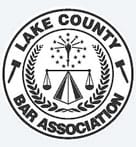There are many aspects of an Indiana divorce and people who are in the middle of such an upheaval are not expected to immediately understand all of them. While some cases are contentious, others are relatively amicable. Many fall somewhere in between. If the couple has certain issues about which they can agree and others that are in dispute, there are ways to have a smooth divorce process that addresses contested and uncontested issues. Understanding what the law says about this is critical to using it effectively and a law firm experienced in family legal cases can help.
Bifurcation in a divorce means that the issues are split. With this process, the parties can have a summary disposition of some parts of the case while there will be a hearing on others. It can expedite the case so a party who wishes to remarry can do so while the case is not yet completed. The summary disposition might sound comparable to a summary dissolution. With a summary dissolution, the sides are not in need of a hearing because they have agreed on all issues. The divorce is relatively straightforward and after the required time-period has passed, the divorce will be granted. A summary disposition does the same with the individual parts of the divorce that have been agreed to. For example, if the parties agree on property division, it can be completed without a hearing.
With contested issues, there will be a hearing. When the parties seek a summary disposition, they must: have a written waiver of a hearing for uncontested issues that are listed or contested issues that are specified and they have agreed upon. There must also be a statement that specifies the contested issues that are still in place and that the court is being asked to have a final hearing regarding that which is being contested.
Having a bifurcation is not as easy as a summary dissolution, but in many divorces, it is impossible for the parties to agree on everything. With this option, the case can be smoothed considerably with the court only holding a final hearing on factors that the parties cannot negotiate and agree upon. To use this alternative or to consider other ways to deal with the case, having legal advice might be useful. Calling for a consultation as to the wisest steps in a divorce can help.








